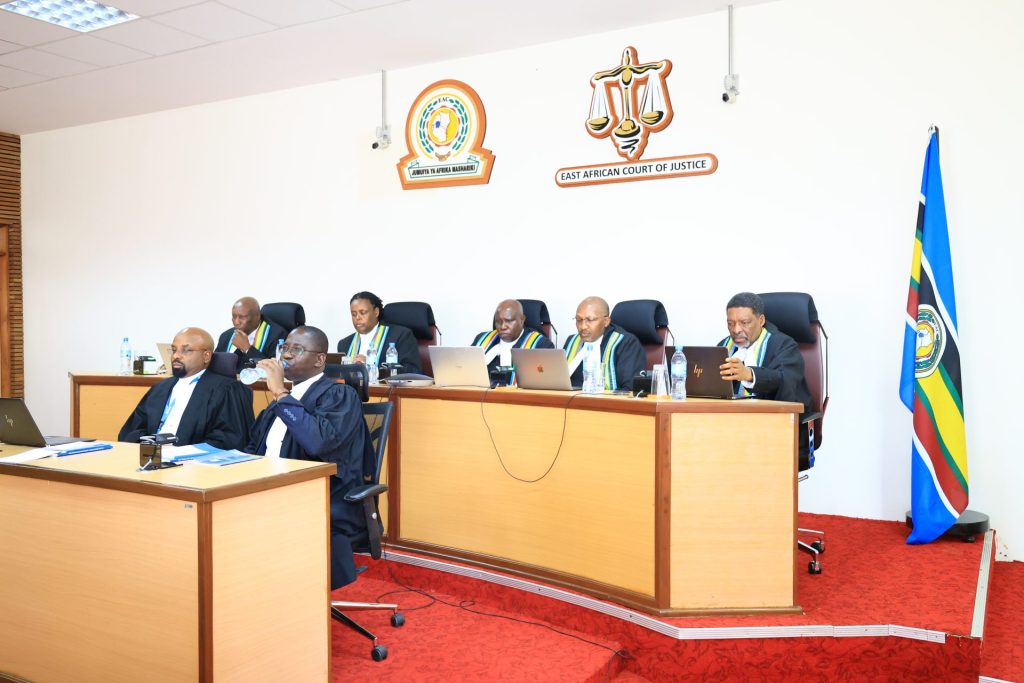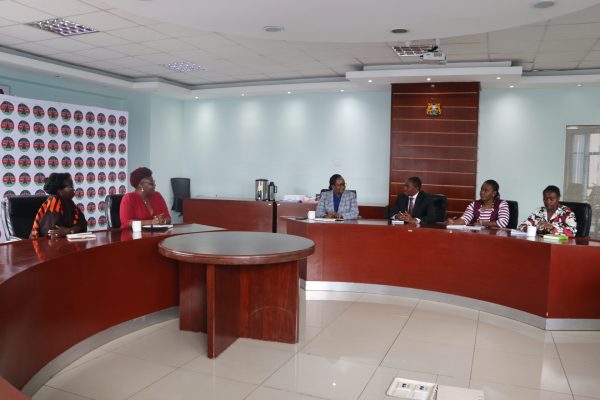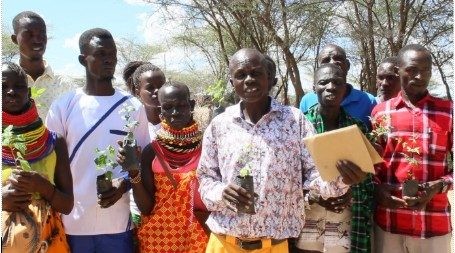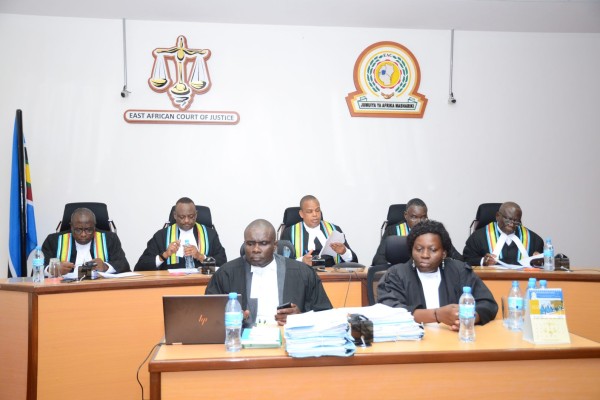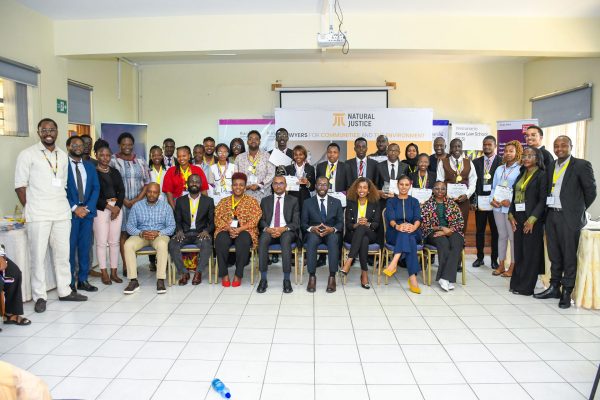FOR IMMEDIATE RELEASE
Arusha, Tanzania – The Appellate Division of the East Africa Court of Justice (EACJ) has today, November 26, 2025, delivered a disappointing ruling in a high-stakes case challenging development of the East African Crude Oil Pipeline (EACOP).
Through the ruling, the judges upheld a decision made by the First Instance Division of the EACJ which, in November 2023, dismissed a case filed by four East African civil society organisations (CSOs) in November 2020.
The CSOs that filed the case include Africa Institute for Energy Governance (AFIEGO) from Uganda, Center for Food and Adequate Living Rights (CEFROHT) from Uganda, Natural Justice (NJ) from Kenya, and Centre for Strategic Litigation (CSL) from Tanzania.
The CSOs sought to stop the human rights, environmental, and climate impacts or risks associated with the EACOP project.
During today’s court session, judges at the Appellate Division of the EACJ observed that the First Instance Division did not err in ruling that the case by the CSOs was filed out of time.
The judges, who include Justice Nestor Kayobera, the president of the Appellate Division of the EACJ, Justice Anita Mugeni, the Vice President of the court, and Justice Kathurima M’Inot agreed with the First Instance Division, noting that the EACJ does not have jurisdiction to hear the main case.
The other judges present in court included Justice Cheboriona Barishaki and Justice Omar Othman Makungu.
The judges however overturned the order issued by the First Instance Division awarding costs to the governments of Uganda and Tanzania, as well as to the Secretary General of the East African Community (EAC). The three are the parties against whom the CSOs filed the suit.
While reading the ruling, Justice Kayobera observed as follows, “We have carefully considered the pleadings of the parties … [and] from the chronology of events [relating to signing of the EACOP agreements], any sane person would adduce that the reference [case filed by the CSOs] … runs afoul of the time limitation provision [in] the EAC [East African Community] Treaty. The case is hereby dismissed”.
By upholding the ruling of First Instance Division, the judges dismissed the case by the CSOs on a narrow legal technicality in EAC laws which provides that cases filed outside a 60-day time limit are not heard by court.
Worth noting is that key agreements related to the EACOP were made public only years after they were signed. The case by the CSOs was based on EACOP-related agreements such as the Inter-Governmental Agreement (IGA) and Host Government Agreement (HGA).
The judges failed to consider when communities and CSOs actually became aware of the project’s impacts and EACOP agreements, effectively shutting the door on the case without examining any of the evidence.
BACKGROUND
The appeal marks the end of the journey of a case that was filed in November 2020 by the four CSOs. Through the case, the CSOs sought to have the EACJ declare that the EACOP and its related agreements violate national and international laws, and that the execution of the project in legally protected areas contravenes the EAC Treaty.
The CSOs also sought a permanent injunction to halt the construction of the pipeline in protected areas in Uganda and Tanzania, as well as compensation for all project-affected persons (PAPs) for the losses they incurred due to land use restrictions imposed on their properties by the EACOP project developers.
In November 2023, the EACJ First Instance Division dismissed the case on the grounds that it was filed outside the time limit set under EAC laws. In December 2023, the four CSOs appealed the decision. They argued that the First Instance Division erred in law and procedure when it ruled that the case was filed out of time.
The appeal was subsequently heard at the EACJ in Arusha and Kigali, Rwanda, in November 2024 and February 2025 respectively, culminating in today’s disappointing decision.
REACTIONS
During today’s hearing, the courtroom was filled with the CSOs and their lawyers, EACOP project-affected people from Uganda and Tanzania, a lawyer representing the Ugandan government, members of the media and others.
Reacting to the ruling, Mr. Dickens Kamugisha, the Chief Executive Officer of AFIEGO, stated, “The court’s decision is a setback for regional justice and the protection of vulnerable communities as well as biodiversity and our shared climate. The decision has left over 331 million East Africans at the mercy of greedy corporations, which pillage and destroy important ecosystems that communities depend on. The ruling is a travesty, but we remain determined to use all available strategies to protect people and nature.”
Ms. Elizabeth Kariuki, Hub Director – Nairobi Hub, Natural Justice, noted, “This ruling is devastating for the very people whose lives have been upended by EACOP – the families that lost their land and livelihoods, and the communities watching their ecosystems disappear. Today, the court has closed its doors to them. But we will not give up. We will continue to fight alongside communities to ensure that their suffering is not ignored.”
Mr. Cosmas Yiga, a project affected person from Uganda, added, “We have seen the oil curse. We, the PAPs, have been oppressed and we don’t expect any gain from the oil industry. And, as far as I see, let not any ordinary Ugandan expect anything good from the oil industry, besides oppression. Today is a sad day.”
NEXT STEPS
The CSOs will hold various discussions in consultation with EACOP-affected people and communicate the next steps.
ABOUT THE EACOP
The EACOP is a 1,143km pipeline that is being developed by TotalEnergies, the French oil major, China National Offshore Oil Corporation (CNOOC) as well as the Ugandan and Tanzanian governments. The pipeline runs from oil fields in Western Uganda to the port of Tanga in Tanzania.
The EACOP has been described as a mega human rights, biodiversity conservation and climate change bomb, with the project developers being accused of violating the rights of some of the over 13,000 project-affected households in Uganda and Tanzania, as well as putting over 2,000sq. km of protected areas at risk of destruction.
Further, at a time when the International Court of Justice (ICJ) ruled that states are legally bound to take climate action lest they face litigation, the EACOP project developers are constructing a pipeline, whose full value chain emissions are estimated at over 379 million metric tonnes of carbon over a twenty-five-year lifespan.
ENDS
For more information, contact:
- Africa Institute for Energy Governance: dnabiruma@afiego.org
- Center for Strategic Litigation: noel@strategiclawcentre.org
- Center for Food and Adequate Living Rights: sarah.naisanga@cefroht.org
- Natural Justice: salome@naturaljustice.org

